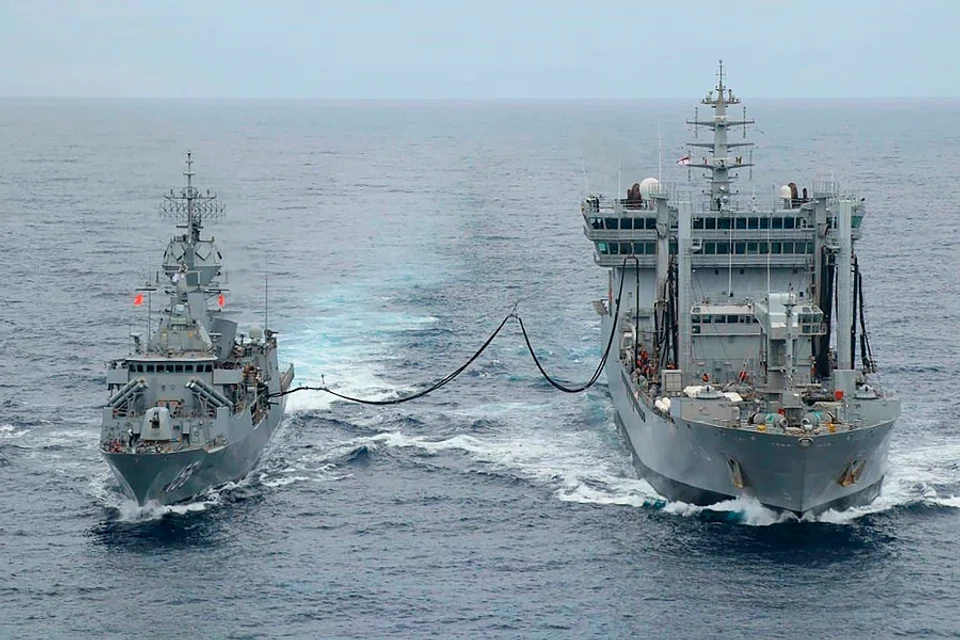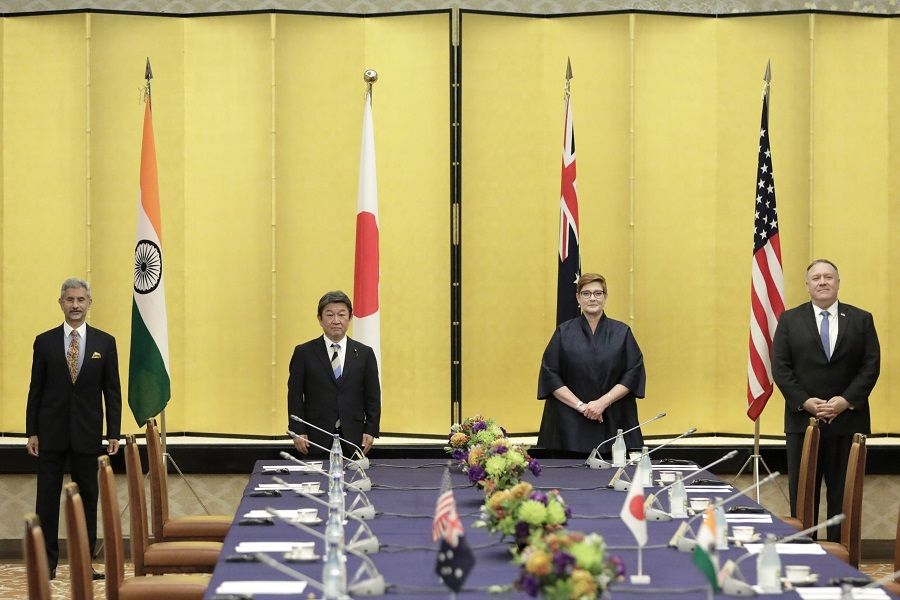The Indo-Pacific strategy could turn into an empty shell under Biden

The Free and Open Indo-Pacific (FOIP) is the most important geopolitical concept that the US has been promoting in recent years. But as a strategic position that targets a single country - China - it is unrealistic both in theory and practice. The Indo-Pacific strategy might just be a flash in the pan.
It is clear that countries in the Asia-Pacific region will not choose between China and the US. But most analysts seem to agree that the approach of treating China as its biggest competitor enjoys bipartisan support domestically and among the US's Western allies abroad. Thus, based on the current domestic and international political environment, it is more advantageous for the Biden administration to take a tough stance on China. But this is not true. The foundations of the so-called consensus are actually very tenuous.
Undoubtedly, the former Trump administration adopted a comprehensive containment strategy against China on the military and economic fronts with the overt goal of overthrowing the Chinese Communist Party. However, both Republican and Democratic elites and the US's European and Asian allies did not fully agree with this strategy. Trump's Indo-Pacific strategy has left the new administration with difficult challenges to overcome.
Indo-Pacific strategy weak in practice
Firstly, the Indo-Pacific strategy can be said to be all talk and no action. The US focused on the military aspect from the start with the aim of building a "mini-NATO" in the Asia-Pacific region. But up until today, there is neither a core military organisation nor a clear military strategy. The only bright spot is the revival of the Quadrilateral Security Dialogue (Quad) between the US, Australia, Japan, and India. But the Quad is far from becoming a coordinated military command organisation. While they conducted their first joint military exercise in more than a decade, their cooperative capabilities did not seem to improve. A core objective of the Biden administration is to reduce the military aspect of its China policy. Hence, it is unlikely that the Quad would further develop into a mini-NATO.
... the fatal flaw of the Indo-Pacific strategy lies in the economic realm as it neither encompasses "Indo" nor "Pacific".

Secondly, the fatal flaw of the Indo-Pacific strategy lies in the economic realm as it neither encompasses "Indo" nor "Pacific". That is, the two major powers of the Indo-Pacific theatre - the US at the easternmost point of the Pacific Ocean and India at its westernmost point - are not members of the trade and investment agreements of this geoeconomic belt. The US withdrew from the Trans-Pacific Partnership which eventually became the Comprehensive and Progressive Agreement for Trans-Pacific Partnership (CPTPP), while India pulled out of the Regional Comprehensive Economic Partnership (RCEP) negotiations.
But China is a member of the RCEP, and has expressed its willingness to join the CPTPP. Thus, the Biden administration is bound to face strong pressure to either join the CPTPP itself, or persuade India to join the RCEP. Both choices are fraught with difficulty. The former may not be approved by the US Senate, while the latter would most certainly fail to get the nod from Indian Prime Minister Narendra Modi. As such, the Indo-Pacific strategy would become a diplomatic shell with little political and military value. As China is of great economic interest to the member states of both agreements, the latter will not easily support an active military confrontational strategy.
Pompeo's diplomatic style has greatly reduced the US's reputation and credibility in the Indo-Pacific region.

Thirdly, the Biden administration emphasises taking a multilateral approach to keeping China in check, and will be counting on its allies to deal with the challenges posed by China. In that regard, the scope of cooperation provided by the Quad is way too narrow and the Indo-Pacific strategy is of little value in consolidating ties among ally nations. As late former Prime Minister of Singapore Lee Kuan Yew said, countries in the Asia-Pacific do not wish to see two elephants fight it out in a deadly confrontation in this region. Trump repeatedly withdrew from multilateral systems during his term in office. And while former US Secretary of State Mike Pompeo frequently participated in diplomatic activities, his performance in the Indo-Pacific region had an adverse effect.
Whenever he visited countries in the region, Pompeo would attack and criticise China, and threaten these countries to choose between the US and China, making himself a nuisance to many regional leaders. Moreover, such behaviour led most Asia-Pacific countries including Japan and South Korea to think that their only value and importance to the US was whether they picked a side, and that the US did not pay much attention to bilateral relations. In fact, Pompeo's diplomatic style has greatly reduced the US's reputation and credibility in the Indo-Pacific region.
... most of America's middle class are not interested in fighting a new Cold War against China but are instead excited about manufacturing jobs created as a result of Chinese investment.
Concerns of the middle class will figure largely in the US's China policy
In short, based on Biden's political calculations, foreign affairs in the next four years will be closely linked to internal affairs. Improving the lot of the middle class was a key policy pledge that helped to defeat Trump's populist movement. But according to a Democratic Party research report released in September last year, most of America's middle class are not interested in fighting a new Cold War against China but are instead excited about manufacturing jobs created as a result of Chinese investment.

Amid a huge party and social divide, a tough China policy is the only rhetoric that the new administration can use to foster unity. This is the real reason why high-ranking officials are collectively speaking out against China.
At the very least, Biden has to give up Pompeo's anti-China diplomacy that calls for overthrowing the communist regime.
Since the election, while the Biden administration appointed an Indo-Pacific coordinator, it made no mention of one for the Quad. Examined from various perspectives, it is difficult for the Indo-Pacific strategy to continue being a key plank of the US's China policy. In fact, it could become a "chicken rib" (鸡肋, used figuratively to refer to something that someone is reluctant to give up although it is of little value) in the new Biden administration's China policy: if the strategy is openly abandoned, the US would be seen as softening its stance on and making concessions to China. On the other hand, if the strategy is not abandoned, then new ideas would have to be drawn up so that the strategy would not be an empty shell. At the very least, Biden has to give up Pompeo's anti-China diplomacy that calls for overthrowing the communist regime.
Related: Winning Indonesia over: US and China seek Indonesia's support in Southeast Asia | Can America find its way under Biden? | Indo-Pacific: The central theatre of 21st century great power struggle | Containing China: Will the Quad become an Asian mini-NATO? | 'Driving the blade inwards': Why China may join the CPTPP
